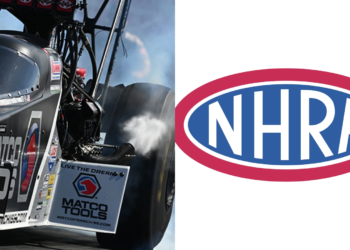You might have seen or heard some sports cars that seem as if they come from the future. With a futuristic look thanks to all kinds of aerodynamic devices installed on the vehicle, such as a rear wing or a spoiler, and other engine changes to enhance the car’s power, sports car aficionados tune their cars not just for an upgraded appearance. Simply put, tuning a car means improving its performance and allowing for a better driving experience for the driver and even the environment.
So, if you have recently invested in a high-quality sports car, you might be thinking of tuning it to fit your needs if you, as a driver, see your vehicle as more than just a way of getting from one place to another. Instead, your car is more of an extension of your personality, and tuning it seems like the right decision and a reasonable investment. Not to mention, by doing this, you can reduce fuel consumption, which is more cost-effective and has less of a negative impact on the environment.
To know more about how tuning a sports car works, read the following guideline:
Current car and aimed tuned version
Before you go with your car to a professional tuning service, it is essential to take into consideration the type of car you already have and the type of car you aim for when it comes to the tune. Otherwise, you risk spending a great deal of money on improvements that do not fit your vehicle and, therefore, cannot be used to their fullest potential. For this reason, depending on your goal, if it’s just for daily use in the city or you want a track car, the modifications differ, and so does the tuning process.
Besides, your car should be suitable for the type of tuning you desire. If you wish to have a car with modifications that will transform it into one suitable for racing, you need to have a vehicle that has these types of features, to begin with. What this means is that a family car, or any other vehicle that doesn’t have a lot of horsepower and wasn’t built with the purpose of reaching high speeds, doesn’t have the capability of a race car. For this reason, any improvements in this direction might be counterproductive. So, if you decide tuning is what you need for your vehicle, it is vital you take into consideration what transformations will fit best and if you would like to have permanent or bolt-on.
Type of modifications
Deciding on the type of modifications is an important aspect, dependent on the reason why you need the tuning. If you don’t need to completely transform the sports car, as you would if you need it for racing, it will make more sense to invest in bolt-on modifications. This way, if you decide to resell the car at any point in the future, you can have the added features removed.
Besides, if you only want temporary car modifications, this way, you remain eligible for the warranty. You might be able to sell the car even with permanent changes, although it could be more challenging. But if the reason for tuning is to be adequately prepared for a racing track, then only with permanent full-on modifications will you be able to match the competition and accomplish the desired performance results.

Professional car tuning service is vital
It might seem obvious that in order to get the best outcome out of your tuned car, it is highly necessary you get professional advice first. What’s more, only an expert car tuning service will be able to make the required changes. Some auto repair shops can do specific changes but are not professionally trained in tuning services.
For this reason, and especially if you wish to tailor your sports car for the track, it is recommended you go to an auto service that specializes in this area. Experts from Cooksport state that “car tuning can be an incredibly complex process. So, it is imperative that any car enthusiasts who may want to add modifications to their cars – whether they are bolt-on or permanent – only ask an expert any questions they might have. What’s more, an expert in tuning can examine the vehicle so you can make an informed decision.” By doing this, not only will you understand better how tuning works and what is best for your car, but you will also ensure that the modifications are durable and professionally done. Even if you might spend more, it will be a guarantee that your car won’t need any repairs anytime soon, which would probably be the case if the tuning isn’t done correctly.
The type of tune you need
There are two main goals drivers want to enhance the performance of their cars: street car tuning for the daily driver or track tuning that is needed for a race car. So, depending on the reason, although the modifications are not entirely distinct, there are certain limitations and differences.
– Daily driver tune: Given that you will still need your car for everyday driving, the tuning can only be so extreme. So, the changes have to be limited. For instance, you can add aftermarket lowering springs which will enhance the handling of your car. Other modifications include performance-oriented brakes – and it is always a good idea to improve the quality of your brakes – or allowing the engine to “breathe” by adding a cold air intake system.
– Race car tune: Clearly, if that is your goal, the tuning will be more complex, all-inclusive, and, therefore, more expensive. From specific wheels and tires that can support the car at high speeds and on various weather conditions to engine modifications, such as nitrous oxide injection that can increase the car’s performance, tuning a sports car for racing transforms the vehicle completely.
The condition of your platform matters
Last but not least, it is of the utmost importance to make sure your car is in good condition. Otherwise, if the vehicle and its engine are degraded enough, then it won’t support the modifications that come from tuning a car. So, if you don’t have a new version, the recommendation is to first properly repair the vehicle before you go to a tuning service. Another equally important aspect would be to make sure that the car type you have can be tuned accordingly and that it supports the intended use – daily drive or racing.







